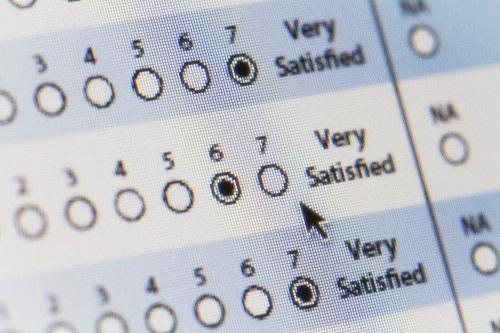
How do you know where to improve youth sports tournaments? What would make participants and attendees have a more enjoyable experience? If you’re like many sports tournament organizers, sometimes this is left up in the air. Or you use guesses and assumptions which don’t work well.
You think you know how well a tournament went and leave it at that. That’s until someone tells you registration was too expensive, or it was challenging to find the venue.
Youth sports organizers and coaches can improve tournaments, experiences, and revenue with post-event surveys. Gathering responses is a quick and straightforward approach that gets direct feedback from players and families.
They will let you know what they enjoyed, didn’t, and where to improve. Implementing feedback will improve participation, word of mouth, and everyone’s experiences.
Here’s how to use post-event surveys for improving youth sports and the ten questions you need to ask.
Why are post-event surveys important?
Post-survey events are questionnaires or forms that you give to attendees or participants after a tournament. It helps you collect valuable feedback to improve services and events. You can use multiple-choice, open-ended, or yes and no style questions. Ideally, these will be sent out to everyone involved in a tournament to get feedback from different perspectives and positions.
For example, what athletes say will differ from their families watching on the sidelines or volunteers. You could give team managers a specific set of questions about accommodations, venues, etc. but ask players about participation and enjoyment. Knowing what each group wants and needs will help them enjoy their sports more.
Other ways event organizers benefit from post-event surveysinclude:
- Each survey has something valuable to teach you about events, participation, and the needs of attendees.
- People love sharing their opinions and insights for things they care about.
- You will have a better idea of who is attending your event, along with their wants and needs.
How to send out post-event surveys
Don’t worry if you aren’t sure how to get started with post-event surveys. You can easily create surveys for tournaments with professional tournament management software. As an example, with EventConnect's, you can go to Navigate to “Custom Questions” under the “Event Setup” tab.

Click the blue plus button to make a new survey. Assign it a name and choose a survey type. These include registration (used at the time of registering), player (collected at the individual player level), group (used for all user’s customized dashboards), management, and others.
Add new questions by assigning a type, label, help text, and validation method. Questions should be tailored to the group of individuals for which you plan to give the survey.

All key stakeholders from event organizers, destination, and hotel partners benefit from creating surveys. Use these to better organize events or projects with destination and hotel partners.
Post-event survey questions
What should you ask participants and attendees after an event? These are some of the best questions to gather valuable feedback for improving future tournaments.
1. Would you suggest this event to others?
Asking this question helps you understand if you provided such a positive experience to attendees to generate word of mouth referrals.
2. Did the event meet your expectations?
Did marketing messages match what attendees experienced? This question will help you ensure everything you offer and advertise matches the event itself.
4. Why did you attend the event?
Asking this question helps you determine the inspiration and motivation for attending. Reasons might be to watch their childrenplay, support the community, or because of a particular attraction.
4. Was registration easy?
Registration can be tedious, expensive, or a pain. People will give you feedback on whether they found registering for an event simple or not. You may find out that certain parts of the online registration don’t work, some information isn’t necessary, and so on.
 5. How would you rate the cost of event/registration fees?
5. How would you rate the cost of event/registration fees?
Were the fees too high? Too little? Attendees and participants will give you insights into whether you need to adjust the cost of events and registration.
6. Did you enjoy the venue/fields/rinks?
We’ve all been to games that were hard to find. GPS nor Google Maps seemed to help. You don’t know how difficult or easy-to-find venues are until you get direct feedback from people attending them.
7. Was the event structured well?
Help understand if everything from accommodations to scheduling and games were organized effectively.
8. How would you rate the event length?
Was the event short? Too long? Perfect? Ask participants how long they believe the tournament should be for next time. This information helps keep teams, attendees, and everyone involved on time.
9. How did you enjoy your time in the area?
Help support your partnerships with local destinationsby asking participants how they enjoyed their stay in a particular city or area. This data allows you to promote partners while understanding what participants did and what they liked.
10. Where can we improve for next time?
There’s no such thing as perfect. Asking where you can improve a tournament helps you make it more enjoyable for everyone next time. Respondents might want better accommodations, pricing, venue location, or something else you can adjust.
Final thoughts on post-event surveys
Imagine a way to get valuable feedback, improve tournament experiences, and even increase revenue from events. There is. How? With the use of post-event surveys. These are questionnaires you send out to players, team managers, families, and others involved in tournaments to collect insights. After all, you don’t know until you ask!
Companies (ours included!) can help create surveys for players, groups, management, and more. Use the questions outlined in this article to understand participants’ needs, where you can improve tournaments, and more. Tailor each survey to different groups for the most valuable feedback. Information on how to improve performance is also available.

